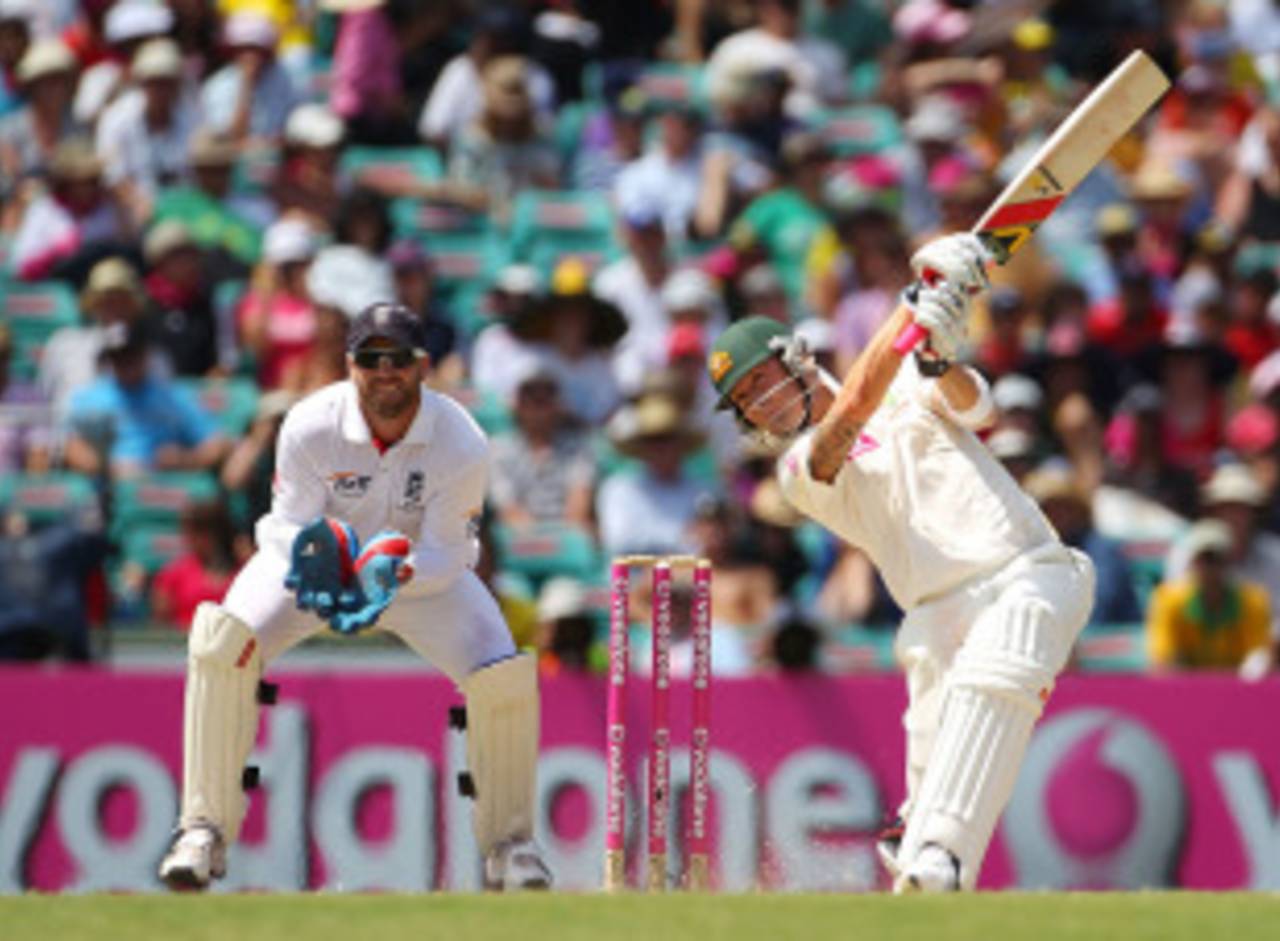Clarke makes priorities clear by skipping BBL
By steering away from the BBL, Michael Clarke is making a definitive statement about what he values most
Daniel Brettig
22-Jul-2011

Michael Clarke's motives are driven by the team he now captains • Getty Images
Michael Clarke is the playing captain of the Australian cricket team. He is not the corporate captain of Cricket Australia. This distinction has been made refreshingly clear by Clarke's decision to stay out of the inaugural edition of the Big Bash League.
His absence from the roster of domestic Twenty20 players is in some ways no great surprise. Having retired from international T20 cricket and never deigned to participate in the Indian Premier League, Clarke has distanced himself from the format. Nor has he ever played a T20 match for New South Wales.
Perhaps because of this gap in Clarke's resume, he was one of the format's weaker exponents when representing Australia at it, generating unkind comparisons with the England captain Mike Brearley during last year's World Twenty20 tournament in the Caribbean.
However, the prospect of Clarke missing an event that CA is bolstering with all the spare cash it can muster is a most significant divergence from the company line. It demonstrates that while CA is doing all it can to grow the game in Australia, and thus the revenue that can be generated from it, Clarke has resolved to devote himself to the task of rejuvenating the Test team. He must make the results of the Australian side his No. 1 priority, even if plenty of office bearers, marketing and managerial figures presently do not.
Last year Clarke explained his position on T20 tournaments when questioned about the episode that saw Mike Hussey and Doug Bollinger inadequately prepared for a Test series in India. He said that players had choices, and his was to do all he could to perform at his best for the national side. Still Ricky Ponting's deputy at the time, Clarke had seldom made a more pointed statement.
"For me, we all have a choice," he said. "You don't have to play IPL. You don't have to play Champions League. For me, personally, right now it is about representing my country, and every game I can play for Australia, I will do that. That's my priority. If, as an individual player, you are tired or your body needs some rest, you need to make that commitment outside of international cricket. You need to, maybe, play less in the IPL or play less in the Champions League."
To this end, Clarke is going to need a break during the brief window between home Test series against New Zealand and India, preceded as they are by tours of Sri Lanka and South Africa. Like his vice-captain, Shane Watson, Clarke needs daily physio to manage his body, the better to stop his problematic back from seizing up at the wrong times. That it did so during Australia's practice fixture against a Queensland XI at the Centre of Excellence during a recent training camp must have given him cause for thought.
Mitchell Johnson, the other CA-contracted player to have excused himself from the BBL, is in a similar position. Though his body is fundamentally sound, his bowling action, and at times his state of mind, need careful management to ensure he is capable of delivering the odd fierce spell that maintains his value to the Australian team. Johnson was roundly applauded by the public for his stance, but there were state associations willing to criticise it in private. The imperative for each state to have marketable names with which to sell their new teams has been at the centre of the debate.
Clarke is about to enter the most defining phase of his career, and no amount of success in the BBL will have been worthwhile if it is deemed to have detracted for one moment from the captaincy of the Test side
Lengthy negotiations, and plenty of tough conversations, were had before Clarke's manager, Chris White, informed CA that the captain would not take part in the BBL. That the Australian captain needed to endure that kind of pressure said rather too much about how the game and its administration has changed in recent times. But Clarke's conclusion that ultimately it would do him little good to be involved in season one showed sound appreciation of his place. He is about to enter the most defining phase of his career, and no amount of success in the BBL will have been worthwhile if it is deemed to have detracted for one moment from the captaincy of the Test side.
One of Clarke's lieutenants, the wicketkeeper Brad Haddin, has made note of the fact that Australia's players cannot keep doing the same things and expect improved results. One of those things has been to divert attention across three formats, to the apparent detriment of the Test team's results and development. The great teams of the past 15 years were more capable of taking that liberty. This one is not. Their pathway back to success will require unity of purpose, discipline and rigour, not the glitz and wild bat swings of the T20 circuit.
By steering away from the BBL, Clarke is making a definitive statement about what he values most. While momentarily miffed that the captain is deserting their buzz project, CA may eventually be grateful that his priorities were clearer than theirs.
Daniel Brettig is an assistant editor at ESPNcricinfo